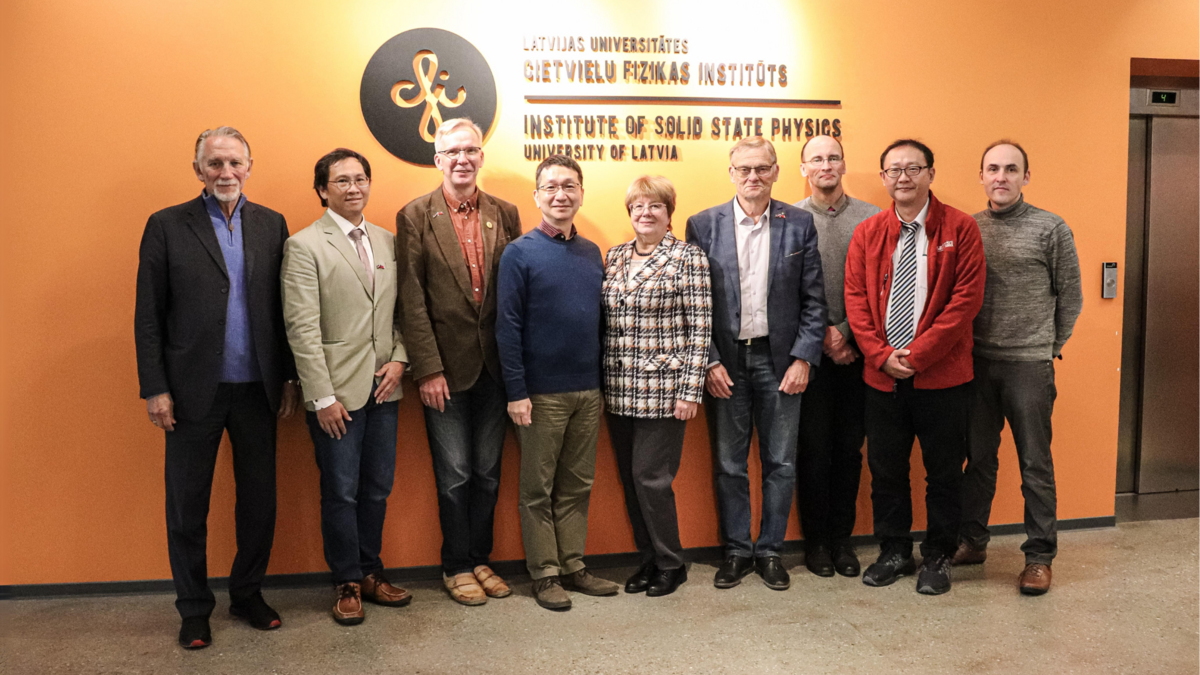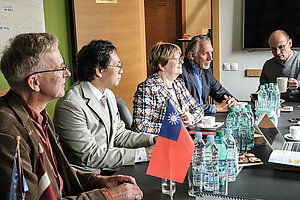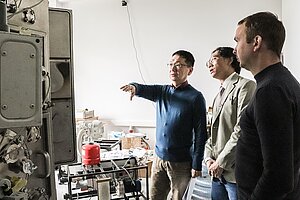
On October 4, 2024, the Institute of Solid State Physics, University of Latvia (ISSP UL) welcomed a group of physics professors from the Department of Photonics at the National Sun Yat-sen University (NSYSU) in Taiwan.
The delegation included four professors: Prof. Mitch Ming Chi Chou, Prof. Chao Kuei Lee, Prof. Yuan-Yao Lin, and Prof. Yi Jen Chiu. The ISSP UL has established a successful scientific collaboration with NSYSU, which led to the creation of the Taiwan-Baltic Research Center for Physics, officially opened on March 12, 2020, on ISSP UL premises.
On the morning of October 4, Professors Mitch Ming Chi Chou, Chao Kuei Lee, and Yuan-Yao Lin arrived at ISSP UL. The visit began with a meeting between Prof. Chao Kuei Lee and Varis Karitāns, Leading Researcher at the Laboratory of Visual Perception, to discuss a joint project and tour the laboratory. Meanwhile, Professors Mitch Ming Chi Chou and Yuan-Yao Lin visited the Spectroscopy Laboratory and the Thin Films Laboratory.


The NSYSU professors also met with Andris Anspoks, ISSP UL Director; Andris Šternbergs, Deputy Director for Research; Laima Trinklere, Leading Researcher at the Spectroscopy Laboratory; Varis Karitāns, Leading Researcher at the Laboratory of Visual Perception; Juris Purāns, Head and Leading Researcher of the Thin Film Laboratory; and Krišjānis Šmits, Head and Leading Researcher of the Microscopy Laboratory. During the meeting, the participants discussed topics related to the Taiwan-Baltic Research Center for Physics and further strengthening Latvian-Taiwanese cooperation in scientific research. Prof. Yi Jen Chiu later joined the discussion. The meeting concluded with a joint lunch, where both sides continued exchanging ideas about future collaboration and joint research activities.
On October 5, the Taiwanese scientists departed for Tartu, Estonia, to attend the Functional Materials & Nanotechnologies (FMNT 2024) conference, held from October 6–9. The conference serves as a platform for researchers to share their latest findings and insights on functional materials, nanotechnologies, and innovation.